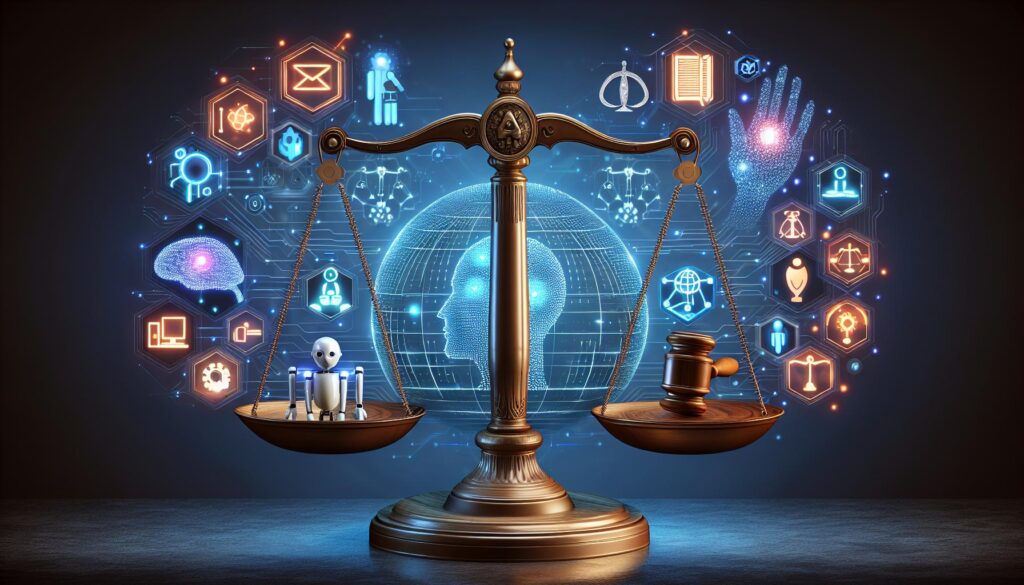AI is a paradigm-changing technology, fundamentally altering our work, our lives, and our interaction with technology and the world at large. Everything from healthcare to finance, AI is revolutionizing industries with process automation, increasing efficacy, and unveiling new creations. That said, the AI menace is real and whether AI will be misused or abused is still a matter we need to solve, and the ethical impact of AI needs to be addressed urgently, as it becomes more and more embedded within our society. The implementation of AI in an unethical position is not just a technical challenge but rather a moral challenge.
What Are AI Ethics?
AI ethics is the collection of standards and processes that govern the creation and usage of AI technology that it is beneficial to society and minimizes potential harm. Ethical AI focuses on:
Fairness: Excluding sources that could presumably be discriminative.
Transparency: Ensuring AI decision-making processes are understandable.
Accountability: Encouraging developers and organizations to be accountable for the impacts of AI.
Privacy: Better protection of users’ data from misuse
Environmental Impact: Greener AI tech, carbon footprint.
Why Ethics in AI Matter
AI systems are being built into critical areas such as healthcare, the criminal justice system, hiring, and finance. Disconnected from ethics, these systems can reproduce socio-cultural biases and make decisions that are non-intuitive to humans or have harmful consequences to people. For instance:
- Amazon eliminated an AI recruiting tool because the data used to train its models was biased, favoring men over women.
- The Netherlands childcare benefits scandal showed how biased algorithms can ruin lives with false fraud accusations.
These examples illustrate the potential for harm when ethical frameworks are neglected.
Key Ethical Challenges in AI
Bias and Discrimination
Artificial intelligence systems often have biases that mirror the inclinations of the data used for their training. If left unchecked, these inclinations can lead to injustice towards specific groups.
Transparency
Many AI models are “black boxes,” and it’s hard to tell how or why they make a decision. Undermining trust is built on the very basis of non-trustworthy data.
Accountability
Determining responsibility for an AI system’s actions, especially in high-stakes scenarios like healthcare, remains a complex issue.
Privacy Concerns
AI systems are gathering and using up personal data at a scale and level of first-order immediacy that raises serious questions of privacy, especially given that there is little accountability around just how data is being used, and users have almost zero knowledge of just what those systems will do with that data.
Environmental Impact
Training large-scale machine learning models has an energy cost that is substantially high and degrades the environment.
Strategies for Implementing Ethical and Efficient AI
Implementation
Organizations must proactively implement ethical practices at all levels of their AI framework:
1. Create Ethical Guidelines for Internal Use
- Develop policies, mitigate bias, and promote transparency, accountability, and privacy.
- Create an AI Ethics Committee to monitor compliance with these guidelines.
2. Diversity in Data and Teams
- Use diverse data sets which cover a wide range of demographics.
- Having teams that are diverse in background will help you see ethical blind spots.
3. Embed Ethics into Development
- Consider ethical implications at each stage of AI development.
- Regularly audit datasets and algorithms for biases.
4. Continuous Monitoring
- Use checklists to review and come back to ethical guidelines.
- Look for third-party audits to aid impartial perspectives on system functioning.
5. Educate Stakeholders
- Training programs to educate employees on ethical ideas and good practices in using AI
- Include cross-functional conversations between developers, legal teams, and user advocates.
6. Partner with Ethical Partners
- Partnership integrated with suppliers who develop ethical AI solutions.
- Seek for transparency, clarity, fairness, and accountability in external tools and evaluate them before implementing them.
The Path Forward
Indeed, an ethically responsible approach to AI is both a technical challenge and a societal imperative. By emphasizing fairness, transparency, accountability, and privacy respect in its guidelines, organizations can develop systems that are both trustworthy and aligned with human values. And as the currents of who shapes the future keep shifting, our commitment to making sure innovation is equitable for all of humanity, must also evolve.
AI ethics is a shared responsibility involving developers, businesses, policymakers, and society at large. By taking deliberate steps toward responsible implementation today, we can shape a future where AI enhances lives without compromising fundamental rights or values.
Source: Read MoreÂ


